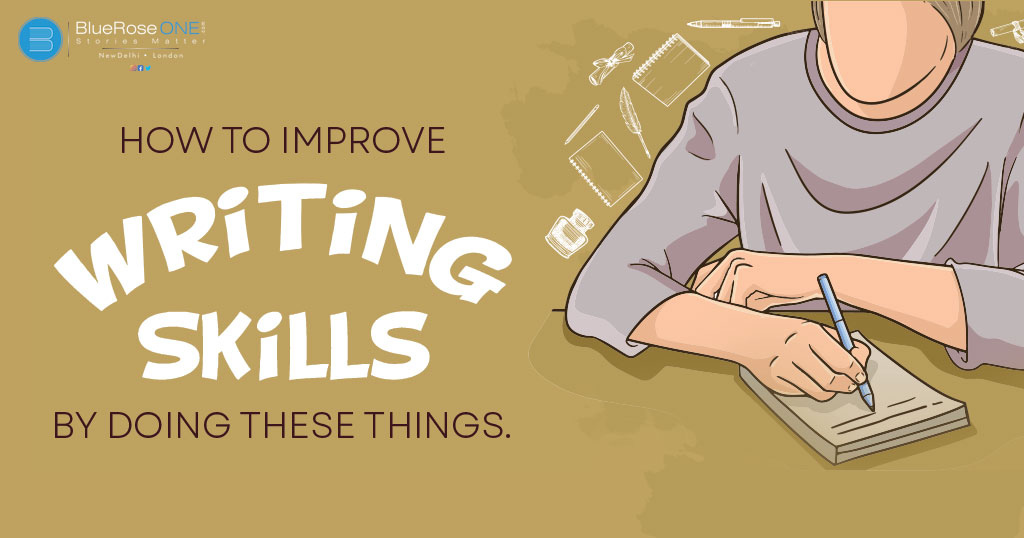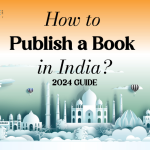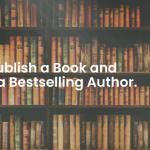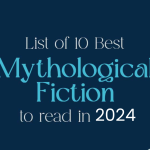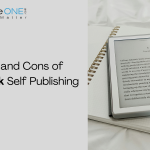In a world where effective communication is paramount, strong writing skills have become increasingly crucial. Whether you’re a student aiming to improve your academic writing or a professional striving to write more effectively in the workplace, there are several strategies you can employ to boost your writing prowess.
Read: A Complete Guide on How to Make Your Book an International Bestseller.
In this comprehensive guide, we will explore various techniques and practices that will help you refine your writing skills, including improving your handwriting, enhancing content writing skills, and developing overall writing and reading abilities.
Understanding the Importance of Strong Writing Skills
Before diving into the strategies for enhancing your writing skills, it’s crucial to understand why having excellent writing abilities is essential. Strong writing skills are not only valuable for academic and professional success but also for effective communication in everyday life.
Whether you’re writing an essay, crafting a report, composing emails, or simply conveying your thoughts in a clear and concise manner, proficient writing skills can make a significant difference. Here’s a breakdown of various facets of writing skills and how to improve them:
- 1. Improve handwriting:
In today’s digital age, typing has become the standard mode of writing. However, the timeless art of handwriting still holds significant importance, particularly for jotting down notes and infusing a personal touch into your correspondence. If you’ve noticed that your handwriting leaves much to be desired, fret not. Here are some succinct tips to help you improve your script:
a. Practice regularly: The path to better handwriting begins with consistent practice. Set aside dedicated time to practice writing legibly. Make it a daily habit to refine your skills.
b. Experiment with Writing Instruments: The type of writing instrument you use can have a considerable impact on your handwriting. Experiment with various pens, pencils, or markers to determine which one feels most comfortable and yields the best results.
c. Size and Spacing Matter: The legibility of your handwriting hinges on the size and spacing of your letters and words. Strive for uniformity, ensuring that your letters are of consistent size and that words are appropriately spaced.
d. Lined Paper for Consistency: Maintaining consistency in your handwriting is made easier with the use of lined paper. The lines act as guides, helping you maintain level letters and uniform spacing.
By adhering to these concise tips and dedicating yourself to regular practice, you can significantly enhance your handwriting skills. Remember, the beauty of your handwritten words lies in the dedication you invest in perfecting your craft. - 2. Content Writing Skills:
For individuals venturing into content creation, be it blogging, marketing, or journalism, mastering the art of content writing is paramount. Here’s a concise guide on how to excel in this field:
a. Broaden Your Horizons with Wide Reading: To elevate your content writing skills, immerse yourself in a diverse range of reading materials. This not only expands your vocabulary but also enriches your knowledge base. The broader your reading, the more versatile your writing becomes.
b. Learn from the Masters: Study the works of accomplished writers to glean insights into their techniques. Great writers provide invaluable lessons on structure, style, and the art of storytelling. Their mastery can serve as your guide in crafting compelling content.
c. Consistent Practice: Regular writing practice is the cornerstone of enhancing your content writing skills. Even if it’s simply journaling your thoughts or maintaining a personal blog, the act of writing regularly sharpens your skills and fosters creativity.
d. Feedback Fuels Growth: Don’t shy away from seeking feedback. Share your written work with peers, mentors, or fellow writers. Constructive criticism is a potent tool for refinement. Embrace it, and use it to improve your writing.
By following these succinct guidelines, you’ll pave the way to becoming a proficient content writer. Remember, excellence in content writing is a journey of continuous learning and refinement, where each word you pen is a brushstroke on the canvas of your craft.
You may also like: The importance of professional editing in self publishing
- 3. Developing Writing and Reading Skills:
Writing and reading skills go hand in hand. To excel in both areas, follow these recommendations:
a. Reading Widely:
Reading is the cornerstone of becoming a proficient writer. It’s the gateway to a world of ideas, styles, and techniques. To excel in both reading and writing, you should embark on a journey that involves exploring a multitude of genres and styles.
Reading widely is like a buffet of literary experiences. Let’s say you decide to read J.R.R. Tolkien’s “The Hobbit”. Within its pages, you’ll be introduced to Tolkien’s meticulous world-building, descriptive storytelling, and the art of crafting epic fantasy. As you accompany Bilbo Baggins through the Shire and the Misty Mountains, you’ll absorb the nuances of a high fantasy narrative.
Now, let’s shift gears to F. Scott Fitzgerald’s “The Great Gatsby.” The Roaring Twenties come to life through his evocative descriptions and character-driven storytelling. The jazz age, extravagance, and the enigmatic Jay Gatsby provide a stark contrast to Tolkien’s epic fantasy. This demonstrates the diversity that reading offers.
By exploring various genres and styles, you can broaden your horizons. You acquire a toolbox of writing techniques and learn to appreciate the multifaceted nature of storytelling. Whether it’s Tolkien’s world-building or Fitzgerald’s character depth, each author contributes to your understanding and inspires you to experiment in your writing.
b. Setting Reading Goals:
Setting reading goals is like establishing milestones in your literary journey. These goals motivate you, provide structure, and enable you to track your progress.
Having a reading goal is like having a map that helps you navigate through books. For example, if you set a goal to read 40 books in a year, you will be encouraged to be consistent with your reading habits. As you finish each book, you will get closer to your goal, which will help you develop discipline and determination.
Reading goals also inspire you to explore different literary genres. If you usually read fiction, setting a goal might push you to try non-fiction or poetry. For instance, by reading Michelle Obama’s “Becoming,” you can learn about memoir writing and personal narratives. This will give you a new perspective and enhance your writing skills.
Moreover, achieving reading goals gives you a sense of accomplishment. When you finish a book or meet your monthly quota, it helps you affirm your reading habit and gives you a sense of achievement. These milestones can also help you develop your writing skills.
c. Taking Notes While Reading:
Reading isn’t merely a passive activity; it’s an opportunity for active engagement. Taking notes while reading elevates your comprehension and your capacity to learn from authors.
Consider Gabriel Garcia Marquez’s “One Hundred Years of Solitude.” As you delve into the intricacies of magical realism within Marquez’s storytelling, taking notes can be transformative. You jot down the blending of reality and fantasy, the symbolism behind Macondo, and the nonlinear narrative structure.
These notes serve as your arsenal for understanding the author’s writing style. They offer a reference point for infusing elements of magical realism into your own narratives. Through this process, you learn to analyse structure, character development, and pacing, which can be applied to your writing.
In essence, taking notes transforms you into an active participant in the author’s world. It encourages you to dissect and appreciate writing techniques, laying the foundation for your growth as a writer.
d. Engaging in Discussions:
Reading is a gateway to dialogue and shared insights. Engaging in discussions about your reading material enriches your comprehension and enhances both your reading and writing abilities.
Imagine you’ve just read George Orwell’s “1984” and joined a book club discussion. The diversity of interpretations among members adds layers to your understanding of the novel. Different viewpoints on totalitarianism, surveillance, and individualism stimulate your critical thinking and provide new perspectives on familiar work.
Moreover, discussions allow you to delve into deeper layers of literature. When you engage in a conversation about Mary Shelley’s “Frankenstein,” you explore themes of ethics, science, and societal acceptance. These discussions not only enhance your reading experience but also encourage you to tackle similar themes in your writing. - 4. Improve Your Writing:
Writing is a craft that transcends boundaries, weaving tales that captivate, inspire, and transport readers to distant realms. Whether you’re crafting a short story, a novel, or a screenplay, your creative writing journey is enriched by embracing universal practices that elevate your storytelling prowess. In addition to specific storytelling tips, here are four universal practices to kindle your creative writing skills:
a. Meticulous planning:
A compelling story is defined by its structure. Therefore, before starting your creative journey, it’s important to plan meticulously and organise your thoughts and content logically.
For instance, if you want to write a short story about a young artist’s journey towards self-discovery, you should begin with an outline. This blueprint is not meant to stifle creativity but instead serves as a roadmap to ensure that your story flows seamlessly.
Your outline may describe the protagonist’s initial passion, their internal conflicts, and the transformative event that leads to self-discovery. Structuring your story in this way enhances its coherence and emotional impact.
Planning is not meant to constrain creativity but rather to fuel it. It gives you the freedom to explore ideas within a framework, guiding your storytelling so that it evolves purposefully.
b. The Power of Editing and Proofreading:
A story’s magic can be diminished by grammatical errors and unclear prose. The twin processes of editing and proofreading can help enhance your narrative, refining it to a luminous shine.
A story’s magic can be diminished by grammatical errors and unclear prose. The twin processes of editing and proofreading can help enhance your narrative, refining it to a luminous shine.
Imagine you have written a short story with vivid descriptions and poignant dialogue. Editing is the first step, where you scrutinise your work with a critical eye. It’s an opportunity to refine sentence structures, choose evocative words, and make sure that every word moves the story forward.
During editing, you should evaluate the flow of your narrative. Are there transitions between scenes that require finesse? Are the characters’ motivations crystal clear? Does the pacing maintain the reader’s engagement?
Proofreading is the final step—the polishing brush that eradicates grammatical imperfections and typographical errors. It’s the sentry guarding the gates of clarity in your writing.
Both editing and proofreading serve as guardians of your creative vision. They help to give your storytelling a professional finish, ensuring that your narrative flows seamlessly, unimpeded by linguistic distractions.
c. Embrace constructive feedback:
Writing is a solitary activity, but it can become more effective when it is shared with others. It is important to accept feedback from your peers, teachers, or editors, as they can provide valuable insights that can enhance your storytelling skills.
For example, imagine that you have written a story about two lovers who are unable to be together. Seeking feedback will allow you to gain diverse perspectives. Your peers may identify parts of the story that resonate with them and highlight areas that need improvement. Teachers can help you understand the nuances of storytelling that you may have overlooked. Editors can also provide valuable feedback, helping to improve the narrative’s coherence and structure.
Feedback can be a powerful tool for growth, as it offers different perspectives on your work. When you receive feedback, it is important to approach it with an open mind. This way, you can learn from the feedback and use it to improve your writing, making it more evocative, immersive, and emotionally impactful. Feedback is not about conforming to the opinions of others, but about using those opinions to enhance your writing skills.
d. Persistence and Patience:
The creative process requires both persistence and patience. As a writer, your journey is a gradual one that unfolds over time through consistent practice.
Imagine you are a budding novelist embarking on your first manuscript. At first, you may feel overwhelmed with ideas, enthusiasm, and self-doubt. However, it’s your persistence that will keep you going as you write, rewrite, and revise your work.
As you progress, you will learn to navigate the complexities of storytelling. Your characters will become more complex, your plot more intricate, and your prose more evocative. It’s a journey that requires incremental progress.
Persistence is key to this journey. It’s the determination to write even when inspiration is lacking. It’s the belief that every word you write is a step towards mastery.
Patience is just as crucial. It reminds you that a great story is built over time, one tile at a time. Patience is what fuels creativity and ensures that you develop profound writing skills.
Enhancing your writing skills is a journey that requires dedication, practice, and continuous learning. By following the strategies outlined above, you can improve your handwriting, elevate your content writing abilities, develop stronger writing skills in English, and boost your overall writing and reading competence.
Read: How to pick between Paperback, Hardcover, Ebook – What’s best for you?
Remember that improvement takes time, so be patient with yourself and stay committed to your writing goals. Whether you’re a student, professional, or simply someone looking to become a more effective communicator, these skills will serve you well in all areas of life.

